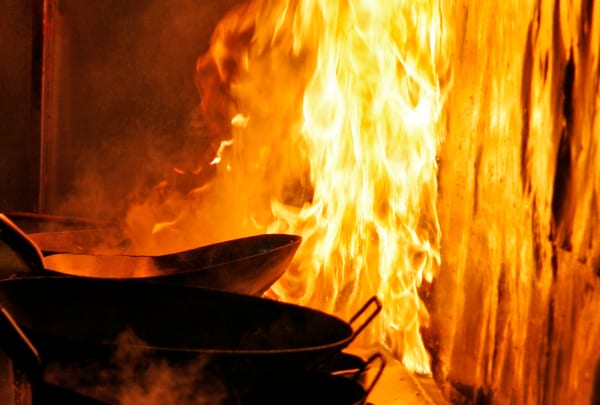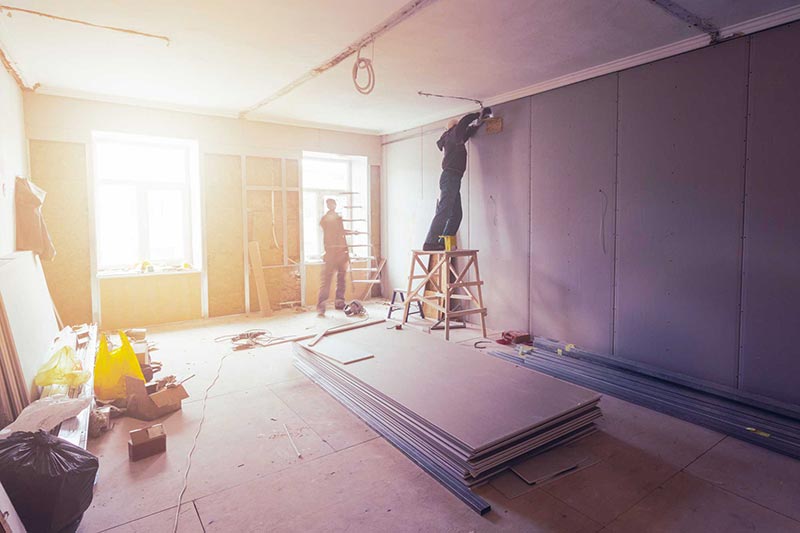
Fire Damage Prevention Tips No One Should Ignore
Fire Damage Prevention Means Fire Prevention
Here is the simple truth about preventing fire damage: Fire damage prevention is almost completely about fire prevention.
When a fire starts, it consumes and blights everything it touches or even gets near, extending tendrils of toxic smoke and soot to travel throughout your home or business and do its destructive will.
The only way to protect your property from fire damage is to protect it from fire. Seems obvious, but there are all manner of so-called “fireproofing” products that could distract property owners from the first and, by far, most effective measures for “fireproofing”: fire prevention and safety.
So we’ve pulled together some great resources to help you safeguard your property and the people within from fire.
First, Fire Safety
We talk about protecting your property from fire and its ravaging effects, aiming to save you money and headaches that come with even small property fires.
But we never forget that buildings are for people. And your family’s or employees’ and customers’ safety is the first and foremost consideration. With that in mind, here are the top American Red Cross tips for fire safety:
- Install smoke alarms on every level of your home, inside bedrooms and outside sleeping areas.
- Test smoke alarms every month. If they’re not working, change the batteries.
- Talk with all family members about a fire escape plan and practice the plan twice a year.
- If a fire occurs in your home, GET OUT, STAY OUT and CALL FOR HELP. Never go back inside for anything or anyone.
Fire Prevention Starts With Knowing Why, How and Where Fires Start
For instance, did you know that the incidence of home fires spikes by more than 200 percent in the month of November?
If you thought, “Well, sure, from all the cooking,” you have already begun the process of fireproofing your home. How so? You’re “thinking” like fire.
Not that fire thinks, of course, but it does nevertheless seem to “like” the conditions that arise in holiday kitchens across the country. Here are some things to consider when you take to the kitchen as the holidays approach:
- Be on alert! If you are sleepy or have consumed alcohol don’t use the stove or stovetop.
- Stay in the kitchen while you are frying, grilling, boiling or broiling food.
- If you are simmering, baking or roasting food, check it regularly, remain in the kitchen while food is cooking, and use a timer to remind you that you are cooking.
- Keep anything that can catch fire — oven mitts, wooden utensils, food packaging, towels or curtains — away from your stovetop.
Source: National Fire Protection Association
You probably already see that if you can figure out that you need to be more cautious in the kitchen during the holidays when you’re sleep deprived, distracted and cooking more than usual, there are other times and places you should be cautious.
Don’t ignore that burn ban during the dry spell. Don’t leave that propane grill unattended overnight. Get those stacks of old magazines off the floor in the garage.
Think about the human conditions that can increase fire risk (fatigue, distraction, alcohol consumption) and other factors like activities and circumstances that increase risk (cooking, burning rubbish, fuel concentrated in enclosed spaces), and head off fire risks before they evolve.
A Few More Things to Consider
If you safeguard your home with smoke detectors, ensure your family understands how to prevent and react to fires, and follow holiday cooking safety guidelines, you will have taken steps to dramatically reduce the risk of catastrophic fire damage to your home, on top of reducing the safety risks for your family. Here are a few more things to consider to even further reduce the risk of fire to your property:
- Ensure that your home’s or business’ electrical system is up to code and is well maintained. Regularly inspect exposed electrical wiring and equipment for proper maintenance.
- Ensure proper maintenance of furnaces, fireplaces and chimneys. Use heating devices according to instructions and heed safety warnings.
- Keep external gutters and drains clear of debris that can become highly combustible during dry spells.
- Instruct children on the dangers of fire, especially to people and pets.
- Be aware of the elevated combustion potential for piles of flammable material, such as old newspapers or old rags.
We hope these tips and resources help you protect your family or business from the devastation of fire. But if the worst happens, we’re ready and able to help you restore your fire damaged property fast and do the job right. Call Professional Restoration for excellence in property damage repair.
Fire Damage Restoration Help You Trust. Call Professional Restoration!

